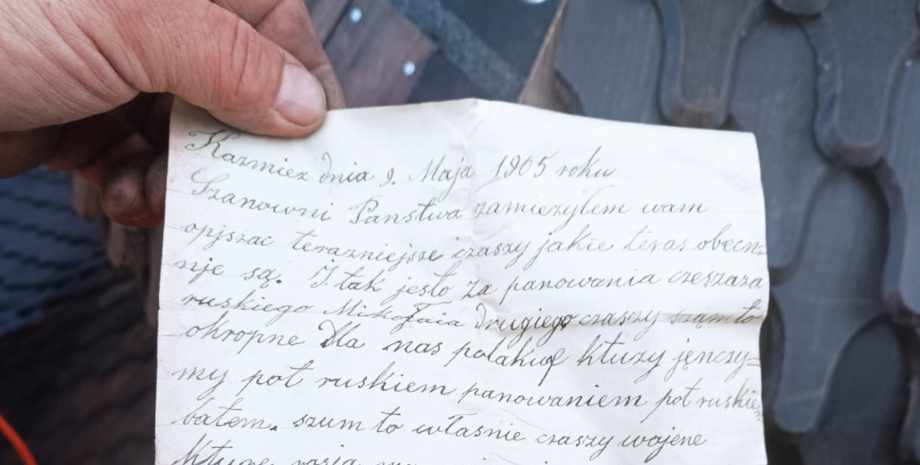
 By Victor Duda
By Victor Duda
Koval from the village of Kazimer-biscumen named Karol Schultz wrote a letter describing the difficulties of the life of the Poles under the Russian Tsar Nicholas II. A short letter written on one sheet of paper begins with the words "Dear Goodness" and testifies: "I intended to describe you the present time that has come now. By the reign of Russian Emperor Nicholas the second, we are terribly lived by the Poles who groan under the oppression of Russian domination and Russian.
" The letter of May 9 was written only a few months after the revolution of 1905 after the very beginning of the same year after the strike of the workers of the Putyliv plant and the so-called bloody Sunday, when the workers who went with a petition to the Winter Palace were shot in St. Petersburg. After that, the nickname "Bloody" was entrenched in Nicholas. At this time, Poland officially ceased to exist, dividing between the Russian Empire, Prussia and Austria.
However, in response to the political, social and economic repression of the king, the Poles rose to mass protests, strikes and demonstrations, demanding political freedom, workers' rights and national autonomy. The royal regime replied with cruel repression: Russian troops and police opened fire on crowds of protesters, which led to hundreds of deaths. Martial law was introduced, thousands of people were arrested or exiled to Siberia.
After the revolution, the Russian regime increased Russification, censored the press, closed Polish schools and suppressed Polish cultural and political organizations. In his letter, Karol Schultz also mentioned the war between the Russian Empire and Japan, which lasted from February 1904 to September 1905.
"It is really a time of war that Russia leads with Japan, and this war is so terrible that there was no similar to it since the beginning of the world, because about a million people have already died in this war, and it has not yet ended," Koval wrote. The conflict caused by rival imperial ambitions ended in humiliating the defeat of Russia. Schultz ended his letter with praise to the local priest for the construction of a new church.
"But even in such difficult times, the Lord God inspired the Holy Spirit of our dear priest Father I. Malakhovsky, who undertook the construction of the church, and thanks to voluntary donations, it was completed and rebuilt by a carpenter by Michal Novakovsky. " Tsar Nicholas II survived the Russian Revolution of 1905, but was forced to renounce the throne of 1917 and was killed with his wife, children and the servant next year.










All rights reserved IN-Ukraine.info - 2022